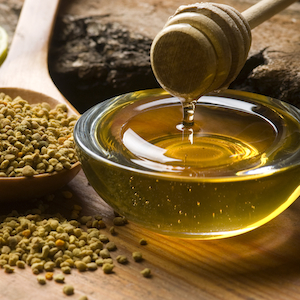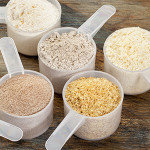 Many fermented beverages claim to be the oldest fermented beverage, with wine and beer being common contenders for the title. Unfortunately, since there is a lack of archaeological research into the history of mead, mostly because of the lack of commercial interest, mead makers don’t have much in the way of evidence to fight for the title. However, mead makers can count on the fact that honey was the first logical fermentable ingredient to work with.
Many fermented beverages claim to be the oldest fermented beverage, with wine and beer being common contenders for the title. Unfortunately, since there is a lack of archaeological research into the history of mead, mostly because of the lack of commercial interest, mead makers don’t have much in the way of evidence to fight for the title. However, mead makers can count on the fact that honey was the first logical fermentable ingredient to work with.
Since mead is not a well-known beverage in Canada, aside from wanting to know what mead is, many people have asked us about its history. There is much debate and speculation about the true history of mead since since it has appeared all over the world in different civilizations. In fact, people from paupers to pharaohs have been enjoying the nectar of the gods for millennia.
Since there is no definitive history of mead, here are just three examples of its possible origin:
1. Mead originated in the African bush more than 20,000 years ago.
According to this version of history, mead was created in the hollowed-out crowns of the Baobab and Miombo trees. During the dry season, wild bees would nest in the hollows of the trees and make honey; during the rainy season, the hollows would fill up with water. By combining water, honey, yeast, and time, mead was born that was then collected by early African tribes and bushmen. In addition, the knowledge of making mead was taken by those that left Africa to travel the world.
2. Mead originated 8,000 years ago on the Island of Crete.
Currently, the oldest known record of mead is the Sanskrit Rig-Veda of Ancient India, and Plato has also mentioned in his writings that the Greeks practiced mead making as well. Within the last few centuries BC, Africa, Europe, and Asia were also enjoying mead and writing about it. Meanwhile, early Celts, Scandinavians, and Mayans were mythologizing mead and using it for its mystical or religious qualities.
3. Some person simply found a random beehive filled with rainwater and was hooked.
In this version of the myth, there is never any real detail about when or where mead was discovered but it’s clear that it happened by accident. Once the first lucky mead drinker had a taste of the sweet liquid, it was likely that they began the intricate art of mead making to replicate the taste. It was common for mead to also be used in religious practices because it was believed to have mystic qualities.
As you can see, although no one knows for sure when and how exactly mead originated, it has been enjoyed by people all over the world for thousands of years. Here’s to hoping that people around the world will continue enjoying this unique beverage for millennia more!



